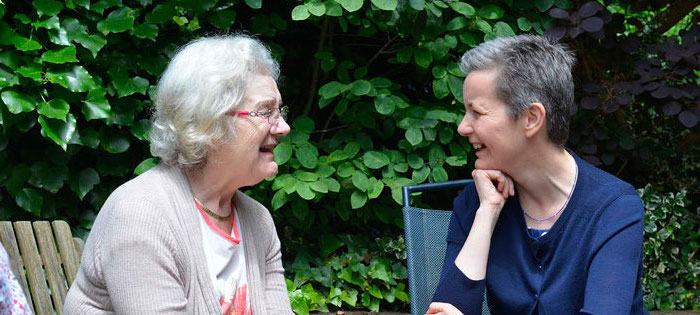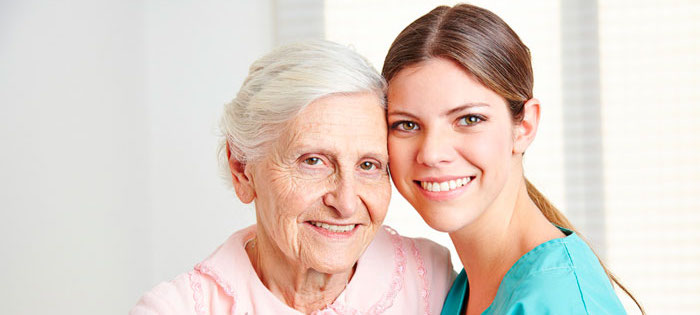
Can you get PTSD from caregiving? If so, how do you minimize the risk of becoming affected by this disorder?
Did you ever think you would be at risk of post traumatic stress disorder just by being the caregiver for a loved one? I bet it didn’t even enter your mind when you took over the role, especially if it was something that you really wanted to do.
In most cases, caregiving should be a peaceful process where the one in care gets to enjoy quality time with his loved ones at the dawn of life. This is the ideal scenario right?
But for a lot of people, depending on the conditions of the one in care, caregiving can be an excruciating and stressful process. The aftermath of which can leave the caregiver in a state of prolonged stress that can border on PTSD or prolonged grief disorder (PGD).
Although there is little research about the post-traumatic stress that may follow after caring for a loved one, several experts (such as Christine Sanderson of Cavalry Health Care in Sydney) have acknowledged that it does exist.
Why Is This Different?
A lot of people tend to think that caring for their loved one shouldn’t be as different as caring for small children. After all, they are both 24/7 jobs that require them to look after someone. If they succeeded at the former, wouldn’t that mean they are prepared for the latter?
Well, quite simply, children grow up and gradually learn to do things for themselves. Each little milestone is usually celebrated as their parents know they’re on their path to independence.
However, looking after a loved one, be it a parent, partner or spouse, is a whole new ball game. If the person has a terminal condition, they are only going to get worse, not better.
If they have had an injury, they may get better but not necessarily back to their pre-accident self. You will probably not be celebrating each milestone they pass through.
A Potential Source Of Trauma
So, as you can see, caregiving for a senior citizen is dealing with a whole new set of emotions. A lot of people are not prepared for this and that is what may lead to them feeling trapped.
Imagine, you may be going along nicely without any problems apart from perhaps lack of sleep and pure tiredness. But the combination of those things, along with the stress of seeing a loved one in constant discomfort, can build up over time.
Then you may feel as though you can’t cope any longer. Feelings of guilt may begin to rise up, as well as dread from not knowing who will take over your role as the principal caregiver if you were to suddenly desist.
Preventing PTSD As A Caregiver
These are the dilemmas you are likely to encounter. So the important thing is to be able to acknowledge them while they occur, rather than suppressing them and waiting for them to emerge once your caregiving duties are over.
If you feel like it’s all too much to handle and you start to crave for your own life back, even something as simple as being able to sit down and enjoy some peace and quiet, you need to know that it’s not because of selfishness.
I’ll say it again. You are not selfish, you are normal. You are not losing your mind either. You have a right to a life and some downtime once in awhile.
The problem is that you probably haven’t planned ahead in order to anticipate this situation.
The Secret Lies In Anticipation
So how can you overcome this guilt? How can you overcome the risk of PTSD so you don’t become dysfunctional yourself?
First, anticipate that you may reach a time when it’s all too much for you. Then you can lay certain things on the table for your loved one, close friends and family to be on the same page.
For example, arrange to have regular breaks for you to replenish yourself. Have someone else fill in for you every now and then so you can stay healthy and on top of things.
Also, avoid wasting time on feeling guilty because you are tired and worn out and can’t or, dare I say it, don’t want to continue in this role.
Remember that you matter too, so think about your own needs from the very beginning. Plan ahead so you can continue caring and avoid the guilt and exhaustion that can and does come with being a full-time caregiver.
Leveling With Others
A big part of this, as mentioned above, is telling yourself and your loved one that you will fulfill the caregiving role for as long as you can and when you can no longer do it, an alternative will be put in place.
If you do this from the beginning you will feel less guilty when the time comes and then you will be much happier letting go in order to preserve yourself and minimize the risk of any post-traumatic disorder in the long run.
Consider that there is no point in having two people sick and disabled because of one person being unwell. No point in having to work to overcome PTSD in the future either, not when you could prevent it in the first place.
That being said, it is worth mentioning that if you have concluded a period of caring for a loved one and are experiencing symptoms of PTSD, no one can determine if you are actually affected by the disorder but an expert on the matter. Be sure to seek proper guidance.
Have a parent that’s causing you stress?
Download our free Challenging Behaviors Guide to discover how you can figure out what’s going on, maintain your relationship and de-stress each day.




